As global trade continues to flourish, the economic connections between China and Malawi are becoming increasingly vital. This growing relationship is reflected in the rising volume of imports from China, encompassing a diverse range of goods such as electronics, machinery, and textiles. With an ever-expanding demand for efficient shipping solutions, sea freight emerges as a key method for transporting goods. Renowned for its cost-effectiveness, sea freight enables businesses to manage logistics economically while supporting a variety of cargo types. In this comprehensive guide, we will explore the intricacies of sea freight from China to Malawi, including shipping options, key ports, shipping processes, cost factors, and strategies for optimizing logistics operations. Whether you are new to international shipping or looking to refine your approach, this guide will provide valuable insights to enhance your import experience.
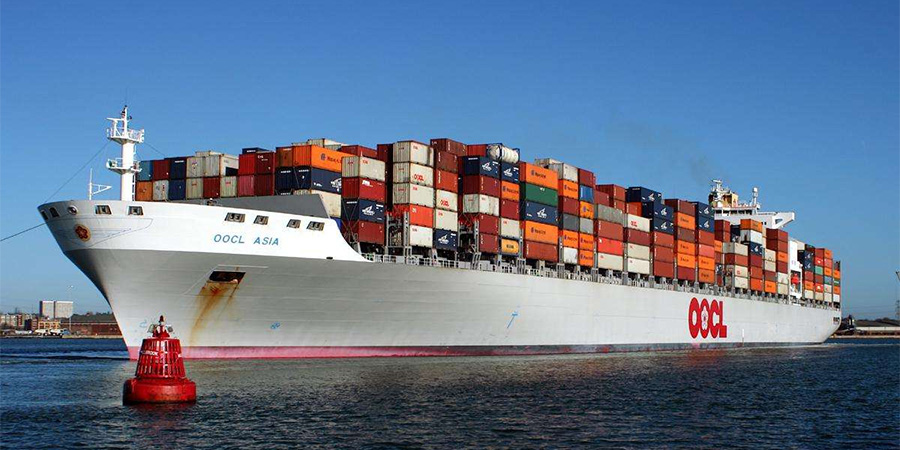
Introduction to Sea Freight From China to Malawi
As global trade expands, the economic ties between China and Malawi have become increasingly significant. This burgeoning relationship is marked by a rising volume of imports and exports, with Malawi importing various goods from China, including electronics, machinery, and textiles. The trade dynamics have led to a demand for reliable and efficient shipping methods, among which sea freight plays a crucial role.
Sea freight, renowned for its cost-effectiveness, is particularly advantageous for businesses looking to transport large quantities of goods. Compared to air freight, sea freight offers lower shipping rates, especially for bulk shipments, allowing companies to manage logistics more economically. Furthermore, sea freight supports a wide range of cargo types, ensuring that businesses can find suitable solutions for their shipping needs.
The advantages of sea freight extend beyond mere cost savings. With well-established shipping routes, companies can expect reliable transit times, which is crucial for maintaining supply chain efficiency. Additionally, the environmental impact of sea freight is generally lower than that of air transport, aligning with the growing trend towards sustainable business practices.
Understanding Sea Freight Options
When considering sea freight for shipping goods from China to Malawi, it’s essential to understand the two primary shipping options: Full Container Load (FCL) and Less-than-Container Load (LCL). Both methods have their unique benefits and considerations, making it imperative for businesses to evaluate their specific needs.
Full Container Load (FCL) Shipping
FCL shipping involves the exclusive use of a shipping container for transporting goods. This option is especially beneficial for businesses that need to ship large volumes of products.
Benefits of FCL Shipping
- Cost Efficiency: For substantial shipments, FCL is often more economical than LCL, as shipping costs are fixed per container rather than per cubic meter or weight.
- Reduced Risk of Damage: Since the container is exclusively used for one shipper’s goods, there is minimized handling and a lower risk of damage associated with mixed loads.
- Faster Transit Times: Containers are typically loaded directly onto vessels, which can lead to quicker shipping times compared to LCL where consolidation and deconsolidation processes may introduce delays.
Factors Affecting FCL Shipping Costs
- Container Size: Available in various sizes (20ft, 40ft, etc.), the choice of container will directly impact shipping costs.
- Destination Port Fees: Different ports may impose varying fees, which can influence the overall cost of shipping.
- Fuel Prices: Fluctuations in fuel costs can impact shipping rates, making it crucial for businesses to stay informed about current market conditions.
Less-than-Container Load (LCL) Shipping
LCL shipping is used when the shipment does not fill an entire container. This option is ideal for businesses that require flexibility in their shipping volumes.
Advantages of LCL Shipping
- Cost-Effective for Smaller Shipments: LCL allows businesses to pay only for the space they use, making it a perfect option for smaller shipments or those with varying shipment sizes.
- Flexibility: Companies can ship smaller quantities as needed without waiting to fill a container, which can enhance inventory management.
Considerations for LCL Shipping
- Longer Transit Times: LCL shipments often undergo consolidation and deconsolidation, which can extend transit times. Businesses should account for this when planning their supply chain.
- Higher Risk of Damage: With multiple shippers’ goods in one container, there is an increased risk of damage during handling. Proper packaging and insurance services can mitigate this risk.
In choosing between FCL and LCL, businesses importing from China to Malawi must assess factors such as shipment size, budget, and timeline requirements. Seeking expert advice from freight forwarders can ensure that the most suitable option is selected for specific shipping needs.
For a seamless shipping experience to Malawi, consider leveraging the services of Dantful International Logistics. As a highly professional and cost-effective freight forwarder, Dantful provides tailored solutions, including door-to-door shipping, customs clearance, and insurance services, ensuring that your goods are transported efficiently and safely. Whether opting for FCL or LCL, Dantful can guide you through the process, helping you make informed decisions that best suit your business needs.
READ MORE:
- Shipping From China To Algeria
- Shipping From China To Angola
- Shipping From China To Morocco
- Shipping From China To Nigeria
- Shipping From China To Kenya
- Shipping From China To Tanzania
- Shipping From China To South Africa
Top Chinese Seaports for Exports to Malawi
When exporting goods from China to Malawi, understanding which seaports facilitate these transactions is paramount. The selection of a port can significantly impact shipping costs, transit times, and overall logistics efficiency. Here are the top Chinese seaports that serve as vital hubs for exports to Malawi.
Shanghai
As the largest seaport in the world, Shanghai serves as a central gateway for international trade. Its advanced infrastructure and extensive shipping routes make it a popular choice for exporters. The port is equipped to handle a diverse range of cargo, including bulk goods, containerized shipments, and specialized freight.
- Benefits: With numerous shipping lines operating from Shanghai, businesses have access to a variety of sailing schedules and competitive rates.
Shenzhen
Shenzhen is another prominent port, recognized for its strategic location near Hong Kong. The port has rapidly developed into a significant hub for both import and export activities in China.
- Benefits: Shenzhen’s proximity to manufacturing districts allows for quick turnaround times and streamlined logistics, making it ideal for businesses that require fast shipping solutions.
Ningbo-Zhoushan
With one of the highest cargo volumes globally, Ningbo-Zhoushan port is crucial for exports to Malawi. Its deep-water capabilities accommodate large vessels, making it suitable for bulk shipping and FCL services.
- Benefits: The port’s efficiency and capacity to handle diverse cargo types ensure that exporters can benefit from reduced transit times.
Guangzhou
Situated near the South China Sea, Guangzhou is a bustling port that plays a vital role in international trade. The port provides access to key manufacturing regions and has established connections with various shipping lines.
- Benefits: Guangzhou’s location helps businesses access a wide range of suppliers, enhancing sourcing capabilities while providing competitive shipping options.
Qingdao
Qingdao is renowned for its advanced shipping facilities and is considered one of the most important ports for exporting goods. This port is particularly advantageous for shipments involving heavy machinery and industrial equipment.
- Benefits: Qingdao offers various shipping services, including container shipping and bulk cargo handling, catering to diverse export requirements.
Tianjin
As one of the leading ports in northern China, Tianjin serves as a critical logistics hub. It is strategically located near Beijing, facilitating trade not only with Malawi but across various regions.
- Benefits: Tianjin’s extensive network of shipping services and its capabilities for handling various cargo types enhance its attractiveness for exporters.
Main Malawi Seaports for Imports
Upon reaching Malawi, imported goods must be processed through designated seaports equipped to handle international shipments. Understanding these ports is essential for businesses to ensure smooth customs clearance and distribution.
Port of Beira
The Port of Beira in Mozambique is one of the most important entry points for goods destined for Malawi. Located approximately 600 kilometers from Malawi’s borders, it functions as a key transit point.
- Benefits: Beira has been developed to handle large volumes of cargo and offers facilities for both containerized and bulk cargo. Its geographical position allows it to serve as a vital import hub for various goods flowing into Malawi.
Port of Nacala
Another significant port in Mozambique is the Port of Nacala, known for its deep-water capabilities. It is strategically positioned and serves as a gateway for imports to Malawi.
- Benefits: Nacala specializes in handling bulk commodities and can accommodate larger vessels, making it an important port for bringing in goods from China and other countries.
Port of Lilongwe
Although not a coastal port, the Port of Lilongwe serves as Malawi’s inland port, allowing for the efficient transfer of goods from Beira and Nacala into the country.
- Benefits: Lilongwe is crucial for the distribution of imported goods across Malawi, with established road and rail networks enhancing connectivity and logistics efficiency.
Port of Mbeya
The Port of Mbeya serves as another primary entry point for goods imported into Malawi. With close proximity to the Tanzanian border, it facilitates trade for various commodities.
- Benefits: Mbeya helps in the transit of goods from ports in Tanzania, ensuring that imports from China can reach their final destinations within Malawi effectively.
Understanding the key seaports in both China and Malawi is essential for navigating the complexities of international shipping. By leveraging the advantages offered by these ports, businesses can optimize their supply chains and enhance their overall logistics strategy when importing goods into Malawi.
For a comprehensive and efficient shipping experience, consider partnering with Dantful International Logistics. Their expertise in customs clearance, warehouse services, and insurance services ensures a smooth transition of goods from Chinese ports to Malawi ports.
You may be interested in the following related articles:
- Shipping From China To Sierra Leone
- Shipping From China To Rwanda
- Shipping From China To Namibia
- Shipping From China To Cameroon
- Shipping From China To Botswana
- Shipping From China To Zimbabwe
Sea Freight Shipping Process
Navigating the sea freight shipping process requires an understanding of the various stages involved, from booking to final delivery. Each step is crucial for ensuring that shipments reach their destinations safely and efficiently.
Booking and Documentation
The first step in the sea freight shipping process is the booking of cargo space with a freight forwarder or shipping line. This involves:
- Cargo Details: Providing information about the type, weight, dimensions, and value of the goods being shipped.
- Shipping Instructions: Specifying the desired shipping method (FCL or LCL), preferred sailing dates, and destination ports.
- Documentation: Essential documents include the bill of lading, commercial invoice, packing list, and any specific export permits required. Accurate documentation is critical for avoiding delays and ensuring compliance with shipping regulations.
Container Loading and Sealing
Once the booking is confirmed, the next phase involves container loading:
- Packing: Goods should be packed securely to minimize damage during transit. It’s essential to follow best practices for packing, especially for fragile items.
- Loading: The cargo is loaded into containers at designated loading facilities. For FCL shipments, one shipper’s goods fill an entire container, while LCL shipments require careful consolidation of cargo from various shippers.
- Sealing: After loading, containers are sealed to ensure security during transport. The seal number should be documented as it is essential for customs and tracking purposes.
Ocean Transportation
Following loading, the container is transported via ocean freight:
- Vessel Routing: Containers are loaded onto vessels that follow established shipping routes. The shipping line provides details regarding the expected transit time and any potential delays.
- Tracking: Many shipping companies offer tracking services that allow shippers to monitor their cargo in real-time, providing peace of mind and helping to manage logistics.
Customs Clearance in Malawi
Upon arrival in Malawi, the shipment must clear customs before it can be delivered:
- Documentation Submission: Necessary documents such as the bill of lading, commercial invoice, and any certificates required for clearance should be submitted to customs authorities.
- Duties and Taxes: Customs duties and taxes must be paid based on the type and value of the goods. Understanding these fees is vital for budget management.
Final Delivery to Destination
After successfully clearing customs, the final step is delivery:
- Transport Logistics: Depending on the delivery location, goods may require further transportation by road or rail.
- Receipt of Goods: The recipient should inspect the shipment upon arrival to ensure that all items are accounted for and in good condition. Any discrepancies should be reported immediately to the freight forwarder.
Factors Affecting Sea Freight Costs
Several factors can significantly influence the costs associated with sea freight shipping. Understanding these elements can help businesses manage their logistics expenses more effectively.
Container Size and Type
- Size Variations: Containers come in various sizes, typically 20ft and 40ft. The choice of container size affects the overall shipping cost, with larger containers generally offering better economies of scale for bulk shipments.
- Container Type: Specialized containers (e.g., refrigerated or flat-rack containers) may incur higher costs due to their specific handling and transportation requirements.
Shipping Route and Distance
- Distance: The longer the shipping route, the higher the freight charges. Routes that involve multiple transshipments can also add to the cost and duration of transport.
- Port Fees: Different ports may have varying fees associated with loading and unloading cargo, impacting the total shipping cost.
Fuel Prices and Surcharges
- Fuel Prices: Fluctuations in global oil prices directly influence shipping costs. Shipping lines typically adjust their rates to account for changes in fuel prices.
- Surcharges: Additional surcharges, such as fuel surcharges or peak season surcharges, can apply during high-demand periods, affecting overall shipping expenses.
Customs Duties and Taxes
- Import Duties: Customs duties are taxes imposed on goods when they enter a country. The amount varies depending on the classification of goods and their value, which can significantly affect total shipping costs.
- Other Taxes: Additional taxes or fees may apply depending on the specific regulations of Malawi, including value-added tax (VAT) or environmental fees.
Insurance and Handling Fees
- Insurance: It is advisable to secure marine cargo insurance to protect goods against loss or damage during transit. The cost of insurance can vary based on the value and type of cargo.
- Handling Fees: These fees are charged by ports and freight forwarders for handling cargo during loading, unloading, and storage. Understanding these costs is essential for accurate budgeting.
By carefully considering these factors, businesses can make informed decisions that optimize their shipping processes and control costs effectively. Engaging with a professional freight forwarder like Dantful International Logistics can also provide valuable insights and assistance in navigating the complexities of sea freight. Dantful offers comprehensive services that include customs clearance, container loading, and insurance services, ensuring a smooth and efficient shipping experience.
Tips for Optimizing Sea Freight From China to Malawi
Efficiently managing sea freight from China to Malawi requires not only understanding the shipping process but also applying strategic practices that can enhance performance. Here are key tips to optimize your sea freight operations.
Choosing the Right Shipping Partner
Selecting a competent shipping partner is crucial for successful logistics management. Look for a freight forwarder with extensive experience in the China-Malawi trade corridor. Consider their network of contacts, the shipping lines they use, and their ability to provide tailored solutions based on your unique shipping needs.
- Reputation: Research online reviews, testimonials, and case studies to gauge the reliability and performance of potential freight forwarders.
- Service Range: A good shipping partner should offer comprehensive services, including customs clearance, insurance, and warehouse solutions.
Proper Packaging and Labeling
Effective packaging is essential to prevent damage and ensure compliance with shipping regulations.
- Durability: Use high-quality packaging materials suitable for the type of goods being shipped. Fragile items should be cushioned adequately, while perishable goods may require special containers or refrigeration.
- Labeling: Ensure that all packages are labeled correctly with clear handling instructions, destination addresses, and other relevant details. Proper labeling helps avoid confusion during transit and can facilitate smoother customs clearance.
Timely Communication with Stakeholders
Maintaining clear communication with all parties involved in the shipping process is vital.
- Regular Updates: Keep all stakeholders informed about shipment status, potential delays, and any changes in logistics plans. This proactive approach can help mitigate issues and improve overall supply chain efficiency.
- Collaboration: Work closely with suppliers, freight forwarders, and customs agents to ensure everyone is aligned and aware of their responsibilities throughout the shipping process.
Staying Updated on Regulations and Requirements
Shipping regulations and requirements can change frequently, impacting logistics operations.
- Research: Stay informed about the latest customs regulations, import duties, and restrictions that may apply to goods being imported into Malawi. This knowledge can help you avoid unexpected delays at customs and additional costs.
- Compliance: Ensure that all documentation and shipping practices comply with local and international regulations, as non-compliance can lead to fines or cargo seizures.
Choosing the Right Sea Freight Forwarder
Selecting the right freight forwarder is critical to achieving seamless logistics when importing goods from China to Malawi. A reliable forwarder can provide valuable expertise and help navigate the complexities of international shipping.
Qualities of a Reliable Freight Forwarder
When evaluating potential freight forwarders, consider the following qualities:
- Experience: Look for a forwarder with a proven track record in handling shipments to Malawi, as familiarity with local customs and regulations can significantly enhance efficiency.
- Network: A robust network of shipping partners, agents, and contacts in both the Chinese and Malawian markets can facilitate smoother operations and better service.
- Customer Service: Exceptional customer service is essential for addressing issues promptly and ensuring a positive shipping experience. Choose a forwarder that is responsive and communicative.
Questions to Ask When Selecting a Forwarder
To make an informed decision, ask the following questions during your selection process:
- What services do you offer? Ensure the forwarder provides a full range of services, including customs clearance, insurance, and warehousing.
- How do you handle delays or issues? Understanding their approach to problems can give you insight into their reliability and commitment to customer satisfaction.
- Can you provide references? Requesting references from previous clients can help you gauge the forwarder’s performance and reliability.
Why Choose Dantful Logistics
Dantful International Logistics stands out as an excellent choice for businesses looking to optimize their sea freight operations from China to Malawi. Here are reasons to consider Dantful:
- Professional Expertise: Dantful has extensive experience in international logistics, specifically designed to cater to the needs of businesses importing goods from China. Their team understands the nuances of shipping to Malawi, ensuring compliance and efficiency.
- Comprehensive Services: Offering a wide range of services, including door-to-door shipping, customs clearance, and insurance services, Dantful acts as a one-stop-shop for all logistics needs.
- Cost-Effective Solutions: Dantful is committed to providing competitive rates without compromising service quality. Their expertise allows for optimized logistics strategies, ultimately saving you time and money.
By leveraging Dantful’s knowledge and resources, businesses can navigate the complexities of sea freight with confidence and achieve successful import operations from China to Malawi.
Dantful International Logistics Services:
- Dantful Ocean Freight Services
- Air Freight From China
- Amazon FBA Freight Forwarding
- WAREHOUSE Services
- One-Stop Customs Clearance Solution
- Cargo Insurance Services in China
- DDP Shipping Services By Dantful Logistics
- Out of Gauge Cargo Transportation Shipping Services

Young Chiu is a seasoned logistics expert with over 15 years of experience in international freight forwarding and supply chain management. As CEO of Dantful International Logistics, Young is dedicated to providing valuable insights and practical advice to businesses navigating the complexities of global shipping.

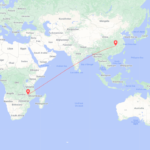

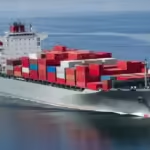


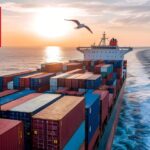
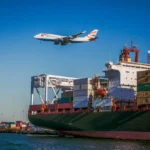



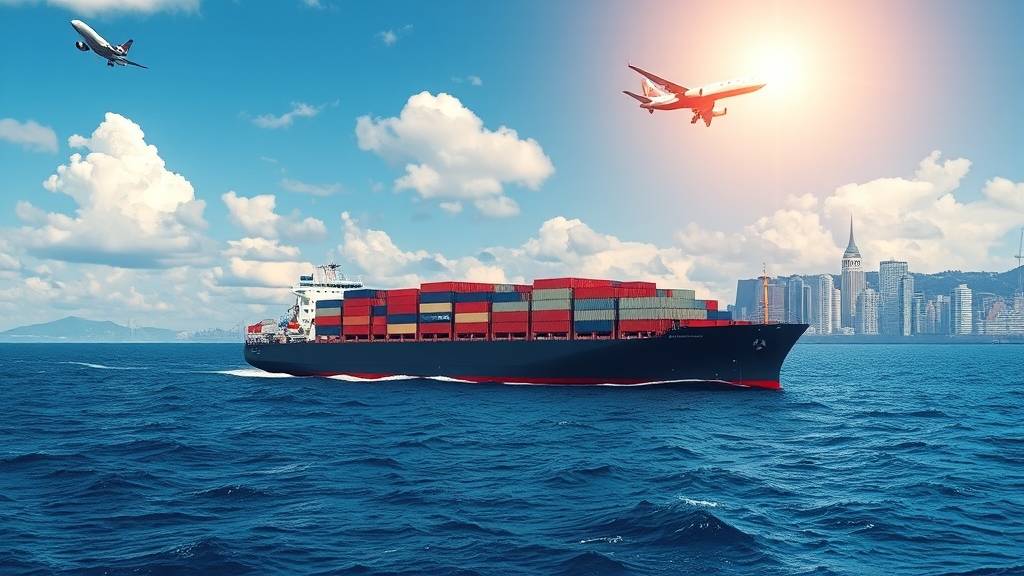

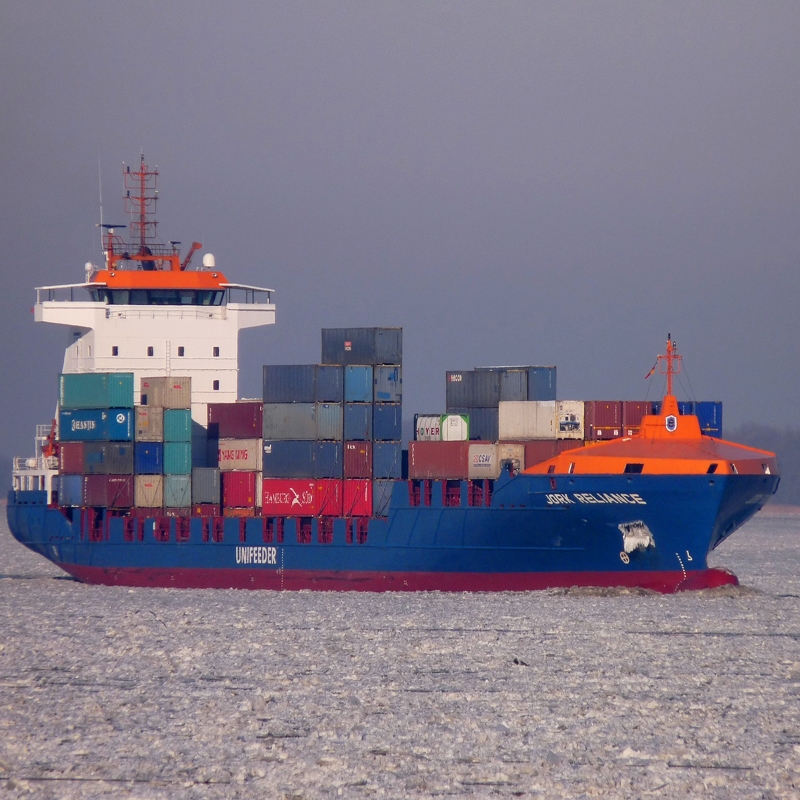
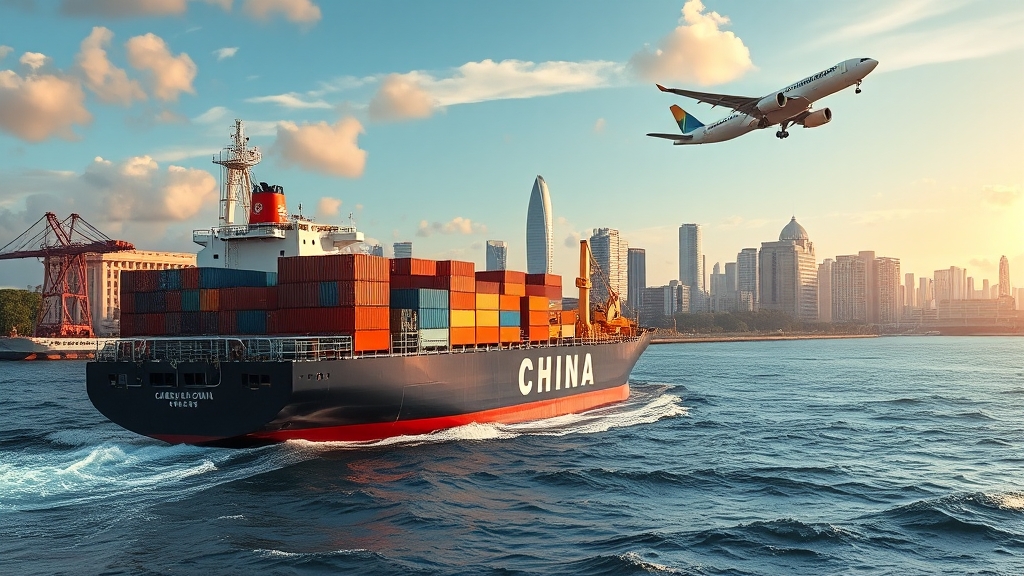
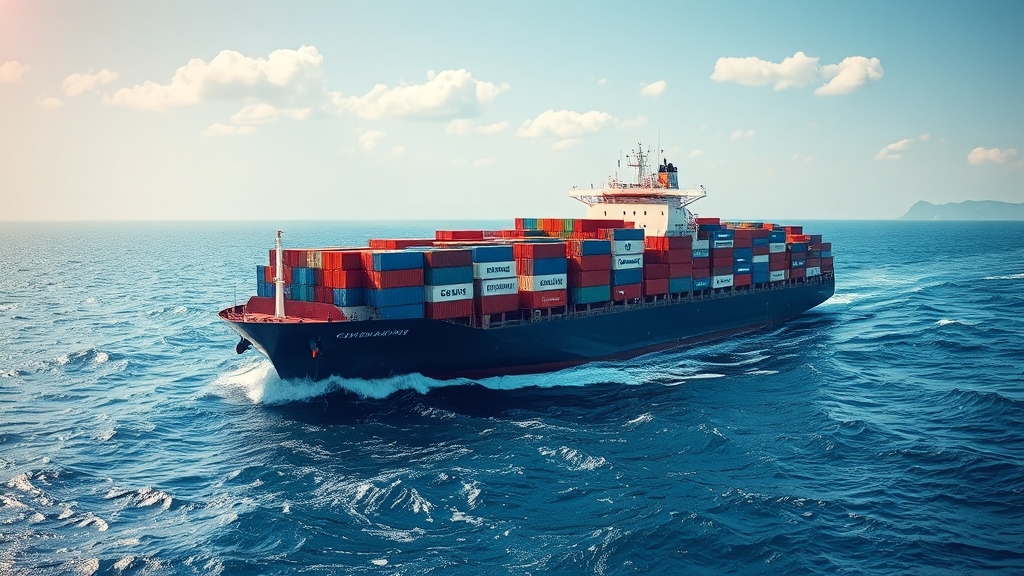





 Afrikaans
Afrikaans Shqip
Shqip አማርኛ
አማርኛ العربية
العربية Հայերեն
Հայերեն Azərbaycan dili
Azərbaycan dili Euskara
Euskara Беларуская мова
Беларуская мова বাংলা
বাংলা Bosanski
Bosanski Български
Български Català
Català Cebuano
Cebuano Chichewa
Chichewa 简体中文
简体中文 繁體中文
繁體中文 Corsu
Corsu Hrvatski
Hrvatski Čeština
Čeština Dansk
Dansk Nederlands
Nederlands English
English Esperanto
Esperanto Eesti
Eesti Filipino
Filipino Suomi
Suomi Français
Français Galego
Galego ქართული
ქართული Deutsch
Deutsch Ελληνικά
Ελληνικά Kreyol ayisyen
Kreyol ayisyen Harshen Hausa
Harshen Hausa Ōlelo Hawaiʻi
Ōlelo Hawaiʻi עִבְרִית
עִבְרִית हिन्दी
हिन्दी Hmong
Hmong Magyar
Magyar Íslenska
Íslenska Igbo
Igbo Bahasa Indonesia
Bahasa Indonesia Gaeilge
Gaeilge Italiano
Italiano 日本語
日本語 Basa Jawa
Basa Jawa ಕನ್ನಡ
ಕನ್ನಡ Қазақ тілі
Қазақ тілі ភាសាខ្មែរ
ភាសាខ្មែរ 한국어
한국어 كوردی
كوردی Кыргызча
Кыргызча ພາສາລາວ
ພາສາລາວ Latin
Latin Latviešu valoda
Latviešu valoda Lietuvių kalba
Lietuvių kalba Lëtzebuergesch
Lëtzebuergesch Македонски јазик
Македонски јазик Malagasy
Malagasy Bahasa Melayu
Bahasa Melayu മലയാളം
മലയാളം Maltese
Maltese Te Reo Māori
Te Reo Māori मराठी
मराठी Монгол
Монгол ဗမာစာ
ဗမာစာ नेपाली
नेपाली Norsk bokmål
Norsk bokmål پښتو
پښتو فارسی
فارسی Polski
Polski Português
Português ਪੰਜਾਬੀ
ਪੰਜਾਬੀ Română
Română Русский
Русский Samoan
Samoan Gàidhlig
Gàidhlig Српски језик
Српски језик Sesotho
Sesotho Shona
Shona سنڌي
سنڌي සිංහල
සිංහල Slovenčina
Slovenčina Slovenščina
Slovenščina Afsoomaali
Afsoomaali Español
Español Basa Sunda
Basa Sunda Kiswahili
Kiswahili Svenska
Svenska Тоҷикӣ
Тоҷикӣ தமிழ்
தமிழ் తెలుగు
తెలుగు ไทย
ไทย Türkçe
Türkçe Українська
Українська اردو
اردو O‘zbekcha
O‘zbekcha Tiếng Việt
Tiếng Việt Cymraeg
Cymraeg יידיש
יידיש Yorùbá
Yorùbá Zulu
Zulu